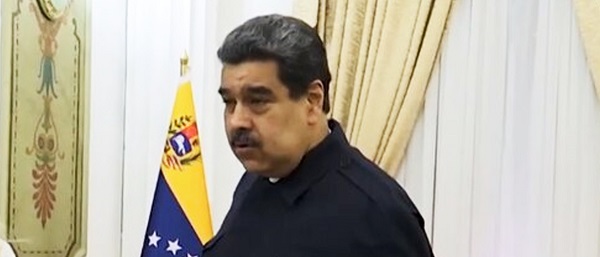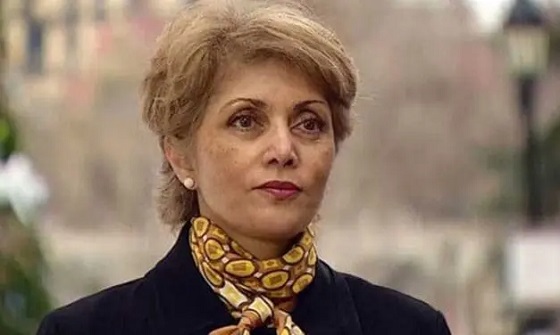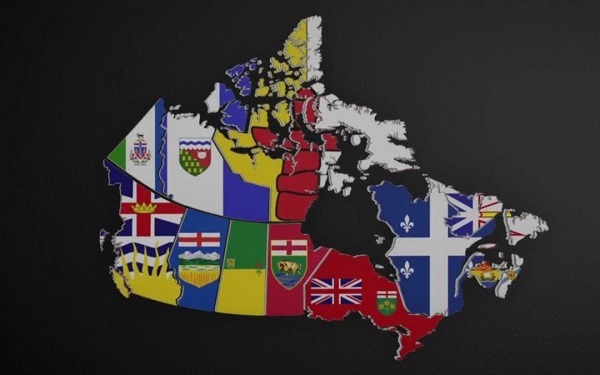News
PC Leadership Hopeful Starke Proposes Plan To Defeat NDP

By Sheldon Spackman
One of four men seeking to lead Alberta’s PC Party to victory in the next provincial election, is proposing an alternative approach to defeating the NDP in 2019. Vermillion-Lloydminster MLA Richard Starke says he has a better option to defeat the current government in two years, rather than merging the PC’s and Wildrose as fellow leadership candidate Jason Kenney has suggested.
Starke says through a release that “Albertans tell me that they want a real change in the Alberta government but do not necessarily like the risky 5-point Unity power grab.” Adding, “Today, I am introducing a proposal that would see Progressive Conservatives and Wildrose working together on a Common Sense Plan; Alberta’s conservative parties collaborating to eliminate the risk of vote splitting in the next election. This Common Sense Plan could include:
- Both parties would fight the 2019 election from positions of strength with a common goal – defeating the NDP.
- Both parties would continue to work as separate but collaborating entities – two parties, two leaders, two caucuses.
- Giving Albertans an option to ensure that there will be no splitting of conservative votes in the next election.”
Starke says Kenney’s plan to dissolve the PC’s and Wildrose and create one new right-wing party instead, is too risky. He says with the next provincial election only two years away, it’s frankly not enough time to start a new party from scratch and be ready for an election. He says his Common Sense Plan preserves two political parties that want to remain. Adding however, that the two parties still need to talk about it, which hasn’t happened yet. As far as vote splitting is concerned, Starke says “There are mechanisms that could be employed to make sure that doesn’t happen”.
Starke goes on to say “It has become apparent that the Progressive Conservative Leadership race is no longer just about selecting the best leader for the Party, but it has changed into who can defeat the NDP in 2019. I believe strongly that Alberta needs to be governed from the centre-right, and that the NDP cannot see another term in office.”
Starke also says “One of the hallmarks of leadership is to listen, and to respond. I have been listening to Albertans who are desperate to see the end of the NDP government. But I have also listened to Progressive Conservative and Wildrose members who do not want to see their parties destroyed. Many have told me they support “unity” because they believe it is the only way to defeat the NDP.”
Starke adds, “I have stated unequivocally throughout the campaign that the 5-point Unity proposal will not work as it depends on the rushed destruction of two existing political parties and other complicated, high risk political maneuvers. It will result in a second NDP term in office. Working together in collaboration rather than competition is the most effective way to defeat the NDP while avoiding the major upheaval of both parties proposed by Jason Kenney.” The two other PC Leadership hopefuls include Byron Nelson and Stephen Khan.
A Leadership Town Hall is taking place in Grande Prairie on Friday, January 27th, with a Leadership Debate in Medicine Hat February 1st. The Leadership Convention and Vote happens in Calgary March 17th, 2017.
Business
CBC uses tax dollars to hire more bureaucrats, fewer journalists

By Jen Hodgson
The Canadian Broadcasting Corporation is using taxpayer money to pad its bureaucracy, while reducing the number of journalists on staff, according to access-to-information records obtained by the Canadian Taxpayers Federation.
“CBC defends its very existence based on its journalism, but its number of journalists are going down while its bureaucracy keeps getting bigger and taxpayer costs keeps going up,” said Franco Terrazzano, CTF Federal Director. “Why does the government keep giving CBC more taxpayer money if barely anyone is watching and its number of journalists keeps going down?”
The CBC employed 745 staff with “journalist” or “reporter” in their job title in 2021. That number dropped to 649 by 2025, the records obtained by the CTF show. Of the 6,100 total employees disclosed by the records, just 11 per cent of CBC staff had “journalist” or “reporter” as their job title in 2025, according to the records.
Even journalist roles such as editors, producers and hosts declined between 2021 and 2025.
While the number of journalists employed by the state broadcaster fell, the number of other bureaucrats grew. The total number of CBC management positions increased to 949 in 2025, up from 935 in 2021.
Bureaucratic roles such as “administrators,” “advisors,” “analysts” and sales staff all increased steadily during the same period.
Management positions saw the steepest growth, with titles like “national director,” “project lead,” “senior manager” and “supervisor” leading the surge.
These trends undermine the CBC’s long-standing claim that its frontline journalism justifies its existence. Despite bureaucratic bloat and fewer journalism positions, the CBC continues to promote its news coverage as a reason it deserves more than $1 billion in annual taxpayer funding.
Separate access-to-information records obtained by the CTF show further proof of CBC’s bloated bureaucracy.
The CBC has more than 250 directors, 450 managers and 780 producers who are paid more than $100,000 per year.
The CBC also employed 130 advisers, 81 analysts, 120 hosts, 80 project leads, 30 lead architects, 25 supervisors, among other positions, who were paid more than $100,000 last year, according to access-to-information records. The CBC redacted the roles for more than 200 employees.
CBC’s CEO Marie-Philippe Bouchard insists the broadcaster is a “precious public asset” that provides “trustworthy news and information.”
CBC’s previous CEO, Catherine Tait, made similar comments throughout her 6.5-year tenure.
“A Canada without the CBC is a Canada without local news [in some places],” Tait said in 2022. If funding were withheld, there would be “fewer journalists to hold decision-makers at all levels to account.”’
“Local news is absolutely at the core of what we do,” Tait said in a 2020 interview. “Canadians are coming to the CBC in numbers like we’ve never seen before.”
However, CBC News Network only accounts for about 1.8 per cent of TV audience share, according to its own data.
Meanwhile, taxpayer funding to CBC will surpass $1.4 billion this year, according to the federal government’s Main Estimates. The broadcaster has spent about $5.4 billion of taxpayers’ money over the last five years, according to the government of Canada.
Prime Minister Mark Carney claimed “our public broadcaster is underfunded” during the federal election. He pledged an initial $150-million annual funding increase and said that number could rise even higher.
CBC paid out $18.4 million in bonuses in 2024 after it eliminated hundreds of jobs. Following backlash from across the political spectrum, CBC ended its bonuses and handed out record high pay raises costing $37.7 million.
“Taxpayers shouldn’t have to pay for an office full of middle managers pretending to be reporters,” Terrazzano said. “The CBC’s own records prove it has fat to cut and if Carney is serious about saving money, he would force CBC to cut its bureaucratic bloat.
“Or better yet, Carney should defund the CBC.”
Internet
It’s only a matter of time before the government attaches strings to mainstream media subsidies

Misinformation is not exclusive to alternative online news organizations
In a previous world, whether they succeeded or failed at that was really no one’s business, at least provided the publisher wasn’t knowingly spreading false information intended to do harm. That is against the law, as outlined in Section 372 of the Criminal Code, which states:
“Everyone commits an offence who, with intent to injure or alarm a person, conveys information that they know is false, or causes such information to be conveyed by letter or any means of telecommunication.”
Do that, and you can be imprisoned for up to two years.
But if a publisher was simply offering poorly researched, unbalanced journalism, and wave after wave of unchallenged opinion pieces with the ability to pervert the flow of information and leave the public with false or distorted impressions of the world, he or she was free to do so. Freedom of the press and all that.
The broadcasting world has always been different. Licensed by the Canadian Radio-television and Telecommunications Commission (CRTC), content produced there must, according to the Broadcasting Act, be of “high standard”—something that the CRTC ensures through its proxy content regulator, the Canadian Broadcast Standards Council (CBSC).
Its most recent decision, for instance, condemned Sportsnet Ontario for failing to “provide a warning before showing scenes of extraordinary violence” when it broadcast highlights of UFC mixed martial arts competitions during morning weekend hours when children could watch. If you don’t understand how a warning would have prevented whatever trauma the highlights may have caused or how that might apply to the internet, take comfort in the fact that you aren’t alone.
The CRTC now has authority over all video and audio content posted digitally through the Online Streaming Act, and while it has not yet applied CRTC-approved CBSC standards to it, it’s probably only a matter of time before it does.
The same will—in my view—eventually take place regarding text news content. Since it has become a matter of public interest through subsidies, it’s inevitable that “high standard” expectations will be attached to eligibility. In other words, what once was nobody’s business is now everybody’s business. Freedom of the, er, press and all that.

Alberta Premier Danielle Smith
Which raises the point: is the Canadian public well informed by the news industry, and who exactly will be the judge of that now that market forces have been, if not eliminated, at least emasculated?
For instance, as former Opposition leader Preston Manning recently wondered on Substack, how can it be that “62 per cent of Ontarians,” according to a Pollara poll, believe Alberta Premier Danielle Smith to be a separatist?
“The truth is that Premier Smith—whom I’ve known personally for a long time—is not a separatist and has made that clear on numerous occasions to the public, the media, and anyone who asks her,” he wrote.
I, too, have been acquainted for many years with the woman Globe and Mailcolumnist Andrew Coyne likes to call “Premier Loon” and have the same view as Manning, whom I have also known for many years: Smith is not a separatist.
Manning’s theory is that there are three reasons for Ontarians’ disordered view—the first two being ignorance and indifference.
The third and greatest, he wrote, is “misinformation—not so much misinformation transmitted via social media, because it is especially older Ontarians who believe the lie about Smith—but misinformation fed into the minds of Ontarians via the traditional media” which includes CBC, CTV, Global, and “the Toronto-based, legacy print media.”
No doubt, some members of those organizations would protest and claim the former Reform Party leader is the cause of all the trouble.
Such is today’s Canada, where the flying time between Calgary and Toronto is roughly the same as between London and Moscow, and the sense of east-west cultural dislocation is at times similar. As Rudyard Kipling determined, the twain shall never meet “till earth and sky stand presently at God’s great judgment seat.”
This doesn’t mean easterners and westerners can’t get along. Heavens no. But what it does illustrate is that maybe having editorial coverage decisions universally made in Hogtown about Cowtown (the author’s outdated terminology), Halifax, St John’s, Yellowknife, or Prince Rupert isn’t helping national unity. It is ridiculous, when you think about it, that anyone believes a vast nation’s residents could have compatible views when key decisions are limited to those perched six degrees south of the 49th parallel within earshot of Buffalo.
But CTV won’t change. Global can’t. The Globe is a Toronto newspaper, and most Postmedia products have become stripped-down satellites condemned to eternally orbit 365 Bloor Street East.
The CRTC is preoccupied with finding novel ways to subsidize broadcasters to maintain a status quo involving breakfast shows. So we can’t expect any changes there, nor can we from the major publishers.
Which leaves the job to the CBC, whose job it has always been to make sure the twain could meet. That makes it fair to assume Manning will be writing for many years to come about Toronto’s mainstream media and misinformation about the West.
(Peter Menzies is a commentator and consultant on media, Macdonald-Laurier Institute Senior Fellow, a past publisher of the Calgary Herald, a former vice chair of the CRTC and a National Newspaper Award winner.)
-

 Business2 days ago
Business2 days agoBank of Canada governor warns citizens to anticipate lower standard of living
-

 Agriculture1 day ago
Agriculture1 day agoCloned foods are coming to a grocer near you
-

 International2 days ago
International2 days agoUS Reportedly Weighing Military Strikes On Narco Targets Inside Venezuela
-

 International2 days ago
International2 days agoSagrada Familia Basilica in Barcelona is now tallest church in the world
-

 Alberta2 days ago
Alberta2 days agoGondek’s exit as mayor marks a turning point for Calgary
-

 Fraser Institute2 days ago
Fraser Institute2 days agoOttawa continues to infringe in areas of provincial jurisdiction
-

 Business12 hours ago
Business12 hours agoYou Won’t Believe What Canada’s Embassy in Brazil Has Been Up To
-

 Automotive12 hours ago
Automotive12 hours agoCarney’s Budget Risks Another Costly EV Bet












